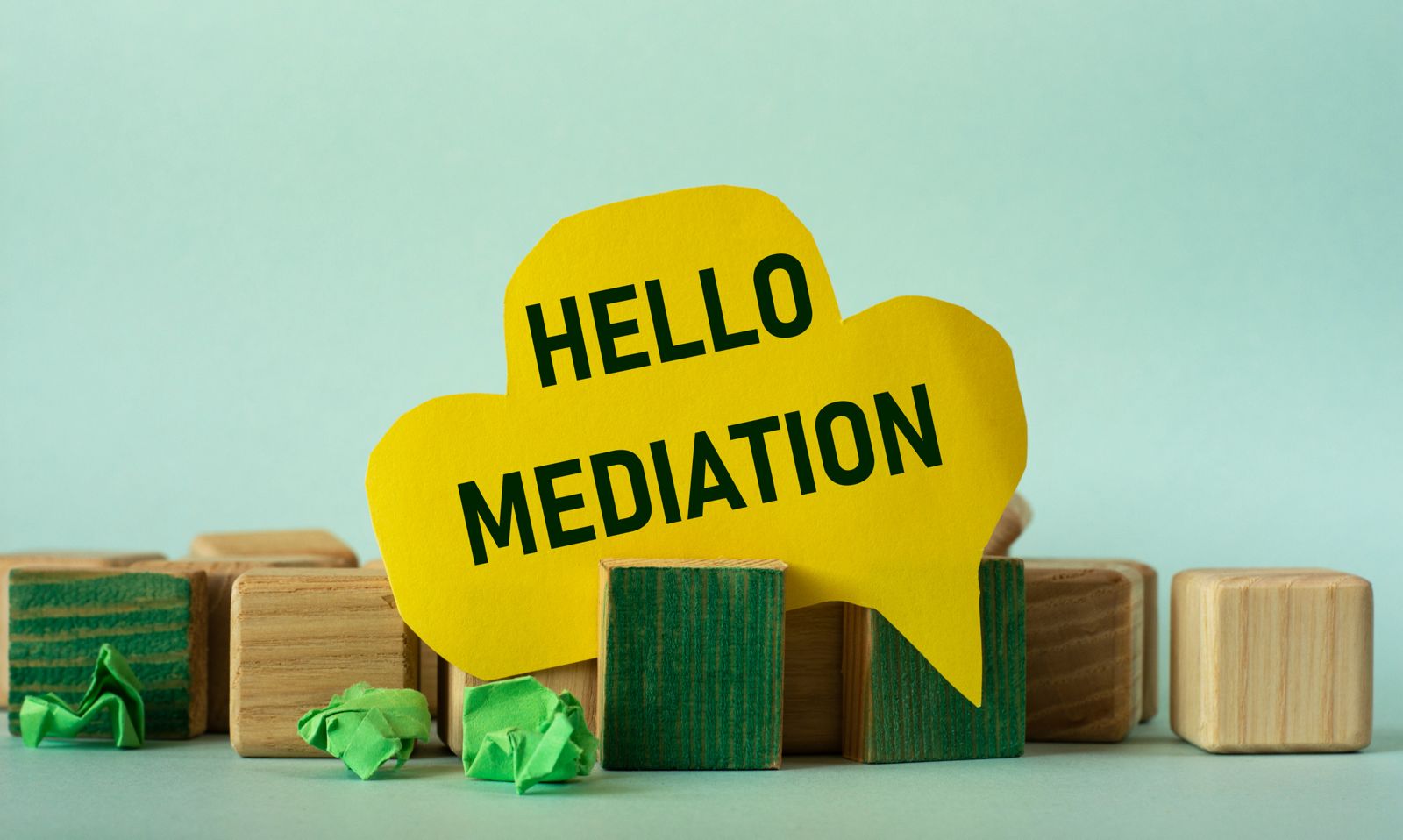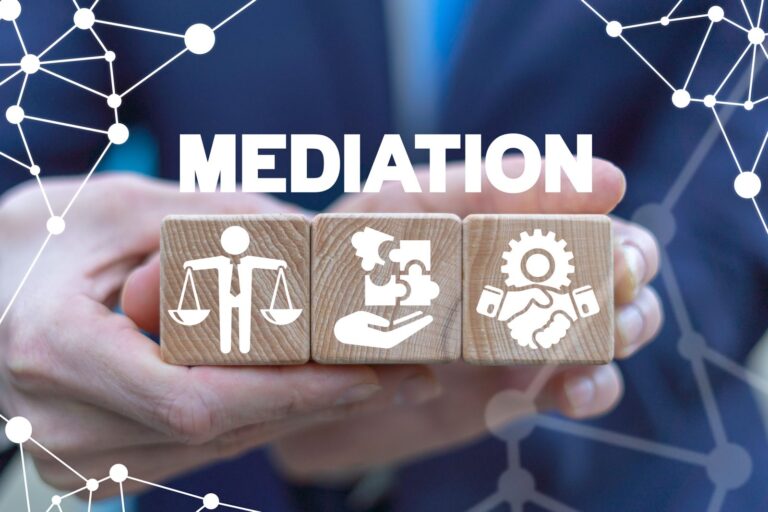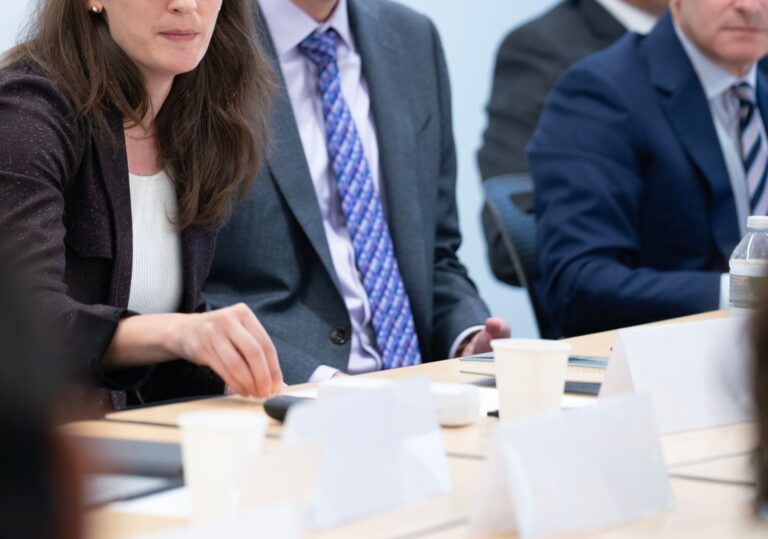info@rubertpartners.com |
+971 4 238 0965 |
API World Tower - Ground Floor, Dubai
Creek Tower Office 10B Deira, Dubai
Introduction: Starting a Mediation in Dubai
Starting a mediation in Dubai often raises uncertainty. Entering mediation can feel like unfamiliar territory. Whether the matter concerns a commercial dispute, a relationship breakdown, or a workplace issue, many people share similar concerns: Will I be heard? Will I be at a disadvantage? Will what I say be used against me later? This guide explains how mediation works, clarifies the mediator’s role, and shows how the process is designed to address these concerns.
1. What Is Mediation?
Mediation is a confidential and voluntary process in which a trained, impartial mediator assists the parties in exploring their differences, understanding each other’s perspectives, and working toward a mutually acceptable agreement. Unlike court proceedings, the mediator does not decide who is right or wrong and does not impose a solution. Instead, the mediator facilitates dialogue, helps identify realistic options, and supports the parties in shaping a resolution suited to their circumstances.
2. The Role of the Mediator: Neutrality and Balance
Neutrality in Mediation
The mediator’s primary responsibility is neutrality. The mediator is neither a judge nor an advocate and does not take sides. Their role is to ensure that both parties can speak, listen, and participate on an equal footing. In practice, this means the mediator manages speaking time, intervenes where one party feels overshadowed, and ensures that discussions remain focused, respectful, and balanced.
Addressing Fears of Imbalance
A common concern at the outset of mediation is that the other side may dominate the process due to experience, confidence, or professional support. Mediators are trained to recognise and address such imbalances. Where necessary, they will actively invite quieter participants to share their views, slow the pace to address legal, technical, or language issues, and manage emotional or power dynamics.
If appropriate, the mediator may also divide the process into private meetings, known as caucuses, to ensure that each participant has a meaningful opportunity to be heard. Participants do not need to compete for attention; the mediator structures the process to give each party an effective voice.
3. Confidentiality: A Safe Space for Dialogue
Confidentiality is a cornerstone of mediation. What is said during mediation generally remains within the process. This allows parties to speak openly, explore options, make concessions, and test proposals without fear that their statements will later be used against them.
Confidentiality typically covers both the substance of the discussions and any documents, notes, or settlement offers exchanged during the mediation. This protection encourages open and honest dialogue, which is essential for meaningful resolution.
4. Guidance Without Imposition
A mediator’s role is facilitative rather than directive. The mediator may clarify complex issues, help reframe positions when discussions stall, and encourage creative solutions beyond a simple win-or-lose outcome. However, the mediator will not impose a solution or force a settlement.
Any agreement reached remains the decision of the parties themselves. This sense of ownership is one reason why mediated settlements are often more durable and cooperative than outcomes imposed through litigation or arbitration.
5. How the Mediation Is Structured
Opening Session
Mediation usually begins with a joint opening session. During this stage, the mediator explains the process, outlines the ground rules, confirms neutrality and confidentiality, and invites each party to present their perspective without interruption.
Private Sessions (Caucuses)
Where appropriate, the mediator may meet each party separately. These private sessions allow participants to explore concerns more openly, discuss flexibility, test settlement ideas, and address emotional or power-related issues in a confidential setting.
Flow of Sessions and Timeline
The process may move between joint and private sessions until an agreement is reached or the parties decide that further time is needed. Some mediations conclude within a few hours, while more complex matters may require several sessions over days or weeks. The pace is determined by the parties, not imposed by the mediator.
6. What Happens at the End of Mediation?
If the parties reach an agreement, it is typically recorded in writing, often in the form of a settlement agreement that can be made legally binding if desired. Even where no final agreement is reached, mediation usually clarifies the outstanding issues, improves communication, and lays the groundwork for further negotiation or formal dispute resolution.
Mediation is therefore rarely wasted effort. It either resolves the dispute or advances it in a meaningful way.
Conclusion
Mediation offers a constructive path forward, not as a concession but as a considered choice. With a neutral mediator, strong confidentiality protections, and a process designed to ensure balance, parties are placed on equal footing to shape their own resolution.
At Rubert & Partners, we combine legal insight with mediation experience and a commitment to fairness. Whether the dispute is commercial, family-related, or workplace-based, our aim is to guide clients toward resolution with clarity, dignity, and control.
For further guidance on mediation in Dubai and the UAE, see our Publications and the videos by our Partner, Maria Rubert.
Disclaimer: This content is provided for general information only and does not constitute legal or professional advice. Each situation is unique, and tailored advice should be obtained for specific circumstances.





